
Bruce Bower has written about the behavioral sciences since 1984. He often writes about psychology, anthropology, archaeology and mental health issues. Bruce has a master's degree in psychology from Pepperdine University and a master's degree in journalism from the University of Missouri. Following an internship at Science News in 1981, he worked as a reporter at Psychiatric News, a publication of the American Psychiatric Association, until joining Science News as a staff writer. In 1996, the American Psychological Association appointed Bruce a Science Writer Fellow, with a grant to visit psychological scientists of his own choosing. Early stints as an aide in a day school for children and teenagers with severe psychological problems and as a counselor in a drug diversion center provided Bruce with a surprisingly good background for a career in science journalism.

Trustworthy journalism comes at a price.
Scientists and journalists share a core belief in questioning, observing and verifying to reach the truth. Science News reports on crucial research and discovery across science disciplines. We need your financial support to make it happen – every contribution makes a difference.
All Stories by Bruce Bower
-
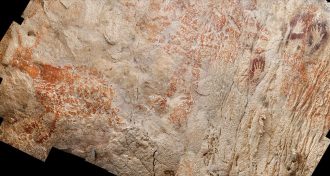 Archaeology
ArchaeologyLike Europe, Borneo hosted Stone Age cave artists
Rock art may have spread from Borneo across Southeast Asia starting 40,000 years ago or more.
-
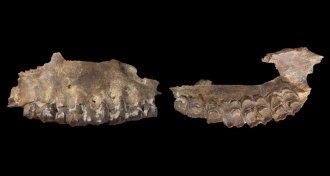 Archaeology
ArchaeologyFossils hint hominids migrated through a ‘green’ Arabia 300,000 years ago
A once-green Arabia may have enabled Stone Age entries by Homo groups.
-
 Archaeology
ArchaeologyAncient South Americans tasted chocolate 1,500 years before anyone else
Artifacts with traces of cacao push back the known date for when the plant was first domesticated by 1,500 years.
-
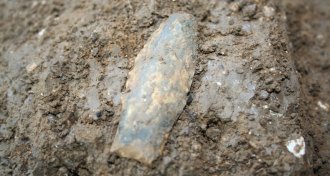 Archaeology
ArchaeologyAncient Clovis people may have taken tool cues from earlier Americans
Ancient Americans’ spearpoints may have heralded later Clovis weapons.
-
 Archaeology
ArchaeologyThe water system that helped Angkor rise may have also brought its fall
A complex water system magnified flooding’s disruption of the medieval Cambodian city of Angkor.
-
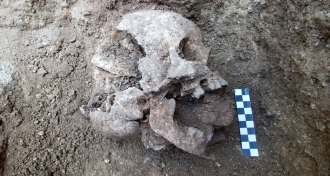 Archaeology
ArchaeologyAn ancient child’s ‘vampire burial’ included steps to prevent resurrection
A 10-year-old skeleton in a Roman cemetery had a stone placed in its mouth to prevent the youngster from rising from the dead, researchers say.
-
 Science & Society
Science & SocietyThe economics of climate change and tech innovation win U.S. pair a Nobel
Climate change and tech innovations inspired the new Nobel Memorial Prize winners in Economic Sciences.
-
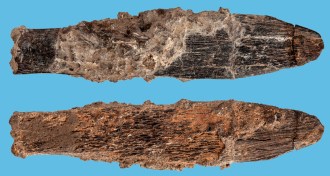 Humans
HumansA 90,000-year-old bone knife hints special tools appeared early in Africa
The discovery of a bone knife in a Moroccan cave points to the ancient emergence of specialized toolmaking in the region.
-
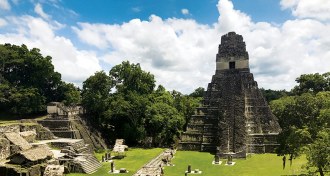 Archaeology
ArchaeologyLaser mapping shows the surprising complexity of the Maya civilization
A large-scale lidar survey of Guatemalan forests reveals evidence of ancient, interconnected Maya cities.
-
 Psychology
PsychologyShahzeen Attari explores the psychology of saving the planet
Merging psychology with engineering, Shahzeen Attari probes how people think about conservation, energy use and climate change.
-
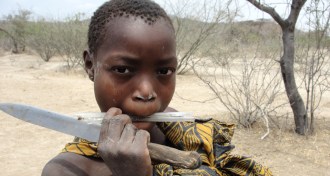 Anthropology
AnthropologyThe way hunter-gatherers share food shows how cooperation evolved
Camp customs override selfishness and generosity when foragers divvy up food, a study of East Africa’s Hazda hunter-gatherers shows.
-
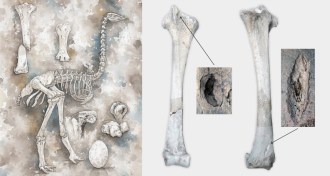 Anthropology
AnthropologyButchered bird bones put humans in Madagascar 10,500 years ago
Humans reached the island near Africa 6,000 years earlier than thought, raising questions about how its megafauna went extinct.